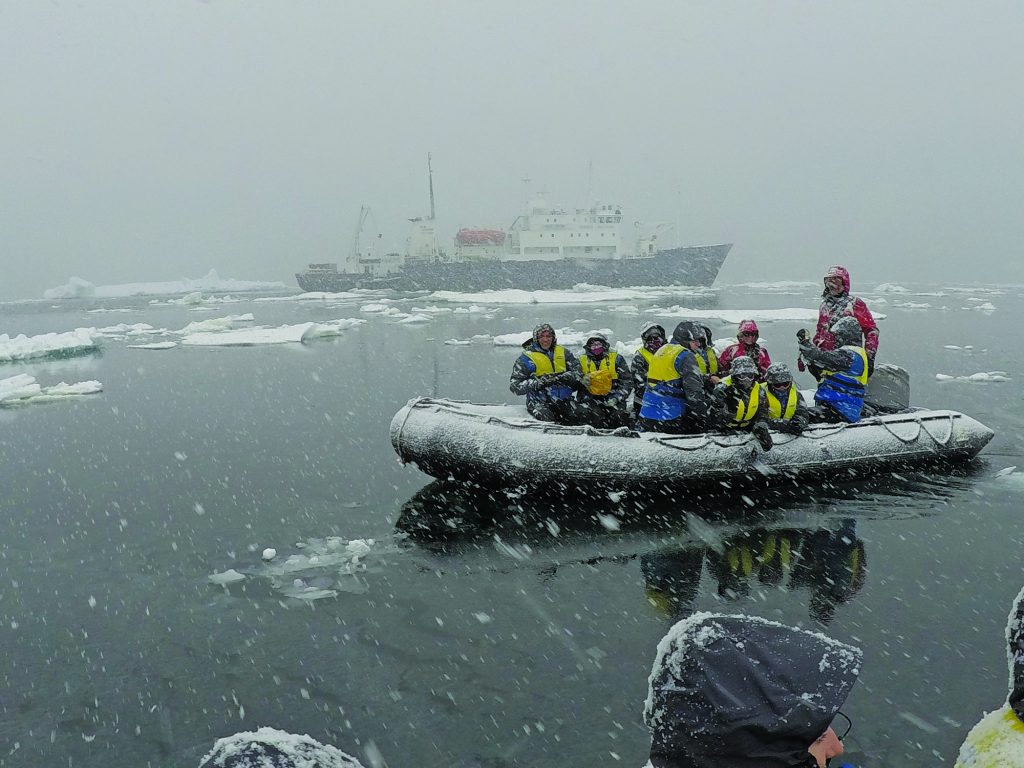A celebrated photographer and prolific writer, read more about his truly wild tales.
By Ashima Sethi
In my time working as a journalist, I’ve been blessed with the opportunity to meet many industry leaders and yet, I can firmly say few inspired me as much as Ganesh Pangare. I had the pleasure of meeting Ganesh and his wife Vasudha, who has equally impressive credentials working in environmental development, at their cosy home, which was decorated with beautiful coffee table-style books about birdwatching and water systems, two things the married duo share a love for, in addition to being the parents of two successful sons, Kartik and Nachiket, who work in India’s music and film industries respectively.
As Ganesh introduces himself and his story, I’m moved by the sheer passion he has for the natural systems that make up the world we live in, a passion that he explains that he discovered early on in his life: “I can tell you many stories about experiences that sparked my love for the environment. When I was a child, I was always interested in birds and animals, a love that started when I would visit the fields with my grandfather in our native village every summer holiday. Later inhigh school, I had a habit of bringing home any injured animal that I happened to find. One time I brought an owl home and my mother didn’t let me enter thehouse as she was superstitious of owls bringing bad luck, though she took care of an injured baby jackal that I showed up with once. In college, I had a pet mongoose named Fedora!” he laughs.
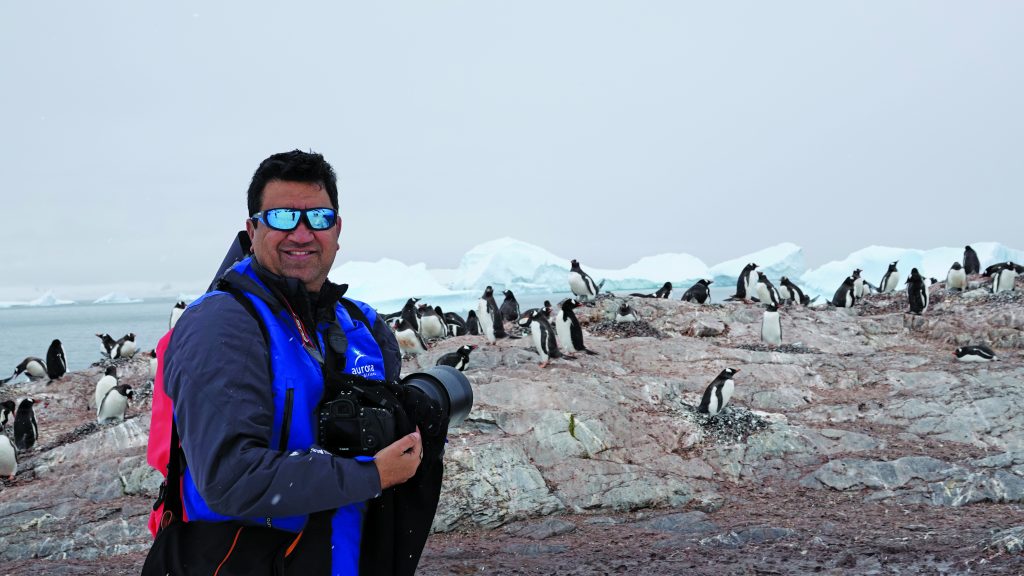
Having been raised as part of a farming family in Pune, Maharashtra, Ganesh’s father never went to college but his dream was always to educate his two children. “My father worked incredibly hard to instil important values in me. After I graduated high school, it was the norm during the time to attend college for subjects like Medicine and Engineering. However, my father told me he’d support me no matter what I pursued. So I enrolled at Pune’s famous Fergusson College and when I started there I asked the principal what subject would allow me to be outdoors the most, to which he replied ‘Botany, Zoology, and Geology,’ so in my first year I decided I’d major in the latter,” he explains.
While in college, Ganesh volunteered with the World Wildlife Foundation (WWF) to earn some pocket money, which is where he ended up meeting his wife. During the same time, India’s most famous environmentalist the late Anil Agarwal was visiting Pune to give lectures. Ganesh explains how he managed to keep in touch with Anil who told him that once he completed his master’s degree, he would be invited to work with him in Delhi. This marked the beginning of Ganesh’s impressive 30-year career in the environment-development sector, during which he authored several books, grew his diverse portfolio of photography, and ventured on expeditions most of us can only dream of. He shares some highlights with Masala.
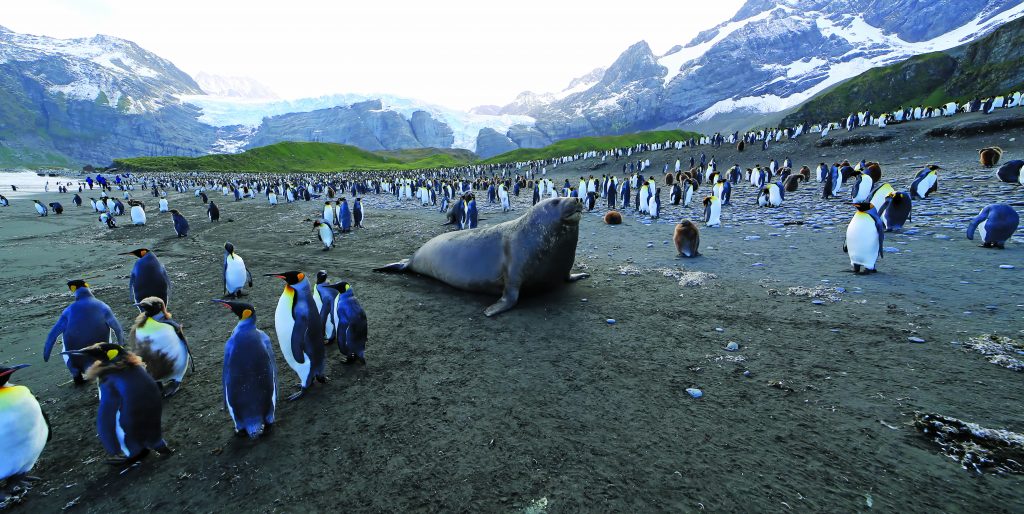
Can you give us some insight into your career?
I worked with Anil Agarwal for three years before being given the opportunity to attend the Institute of Rural Management in Anand, Gujarat. It was started by Dr. Verghese Kurien, who is credited as the father of the White Revolution, also known as the Milk Revolution that centred on self- sufficiency regarding milk in India. I completed a programme there and then was invited to join as faculty at the age of 25. During the early years of my career, I had the pleasure of meeting many stalwarts, the best in their fields, and I was able to learn a lot from them to find my own path. Another important figure in my life was social activist Anna Hazare. I worked with him when he was working on rural development and the first book in English written about him was actually penned by my wife and I.
After helping Anna, I was recruited to become CEO of a think tank run by the Ministry of Water Resources in Delhi that aimed to promote farmer management and irrigation systems. India’s an agricultural country, so we looked into how we could help farmers manage their resources to ensure that the concept wasn’t just top-down, but that it benefits all the beneficiaries. This role gave me the experience of working with government, at a large country level, at a very young age.
After that job, I moved to the United Kingdom but in 2008 I received an offer to work for the International Union for Conservation of Nature (IUCN), the world’s oldest intergovernmental conservation organisation at their offices in Bangkok. I worked as Head of the Water Programme before moving onto Head of their Ecosystems and Livelihoods Group. In 2014, I was headhunted for the position of Regional Director for the International Water Association (IWA) for Asia-Pacific, and now I also work with the World Bank. Throughout my career, water has been a common thread across all my jobs.
You’ve also been the recipient of several awards and fellowships. Can you tell us a little bit more them?
I received the LEAD Fellow: Fellow of the Leadership for Environment and Development when I hadn’t turned 30 yet. It was a global programme that recognised future leaders in certain fields and from India they’d only select 10 at a time.
I also received the Ashoka Fellow: Fellow of the Ashoka Innovators for the Public Programme. It’s a global programme founded by Bill Drayton that promotes social entrepreneurship. I received that fellowship from my idea of setting up farmer organisations in each Indian state. In terms of career recognition, I was also pleased to receive the Global CSR Award for Water Efficiency.
In addition to your career, you’re also a prolific writer. What inspires your writing?
All of my writing is based on my professional experiences. Today, a lot of writing is based on secondary research but all of my writing is based on doing field work. Rather than writing about theory, I believe in learning from the field and from people. My theories evolve out of practice, and recognising what works and what doesn’t work on the ground. I enjoy writing about topics that have not been written about much, and about anything that’ll take me to the most remote corners of the world.
For example, I wrote a book that is going to be published soon by the World Bank about the Brahmaputra, it’s one of the top 10 biggest rivers in the world, which flows through Tibet, China, India, Bangladesh and Bhutan. It’s got about 75 contributors from academics to ambassadors and features plenty of photos of agriculture and wildlife from the start of the river to the end. I’ve been working on this for a long, long time.
Another notable publication was a book I authored about India’s water resources that took me from Kashmir to Ledakh and many places in between. It’s being used in universities and colleges, and many school teachers wrote to me to tell me that it was also being used as a resource to teach children. In addition to the informative black and white text, the book has many fact boxes that many would find interesting. For example, if you enjoy eating pani puri, we mapped out where the pani actually comes from.
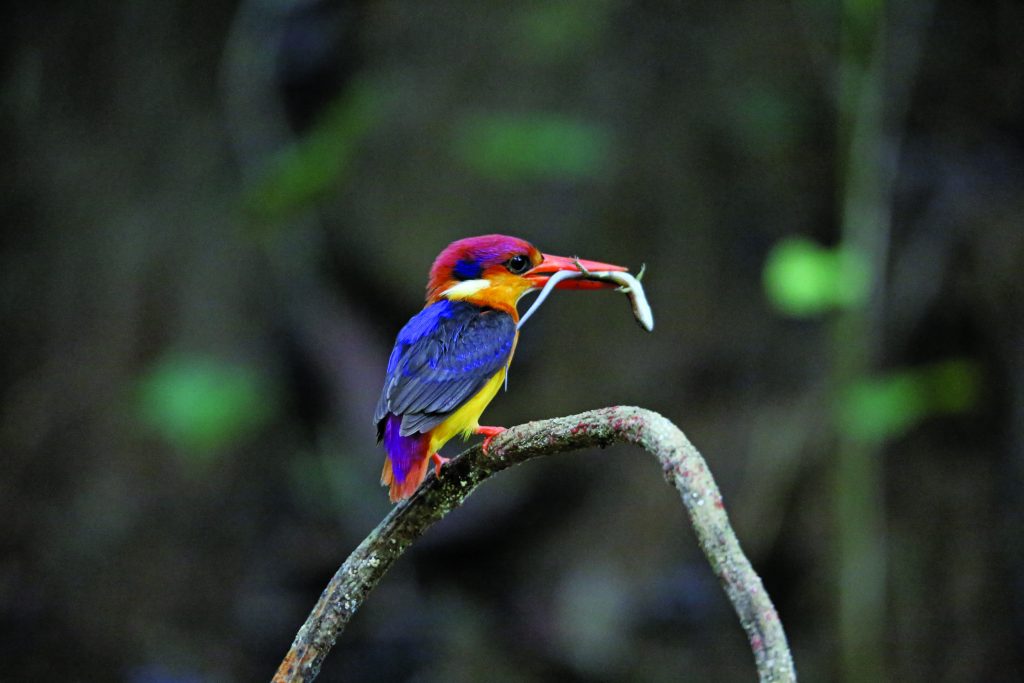
Another one of your passions is photography. How did you discover that you loved it?
While I was volunteering with the WWF in college, I was always in awe of the photographs taken by wildlife photographers and films made by David Attenborough but I never had enough money to buy a camera. When I got married at the age of 23, all the money I received as wedding gifts I put into buying a professional camera and lens. Nowadays, I always have a camera with me and in my publications, I’ve only used photos taken by me.
You’ve been on several expeditions that many can only dream of, can you tell us about them?
My grandfather never left our village, my father left the country for the first time with me, and today I’m lucky to have travelled to all the seven continents and to more than 100 countries. I’ve got many highlights but one was definitely visiting Antarctica. In college, I was Secretary of the Geology Association and at that time, India had launched the country’s first expedition to Antarctica. The Deputy Director of that expedition was called for a talk at my college on behalf of the association, and when I met him he gave me a small piece of rock from Antarctica. Since then, it was rooted in my mind that I had to see it for myself. I finally visited years later, and it was just great.
Another memory I cherish is when I visited Yellowknife in North Canada. We were travelling in a group but when we met the inuits, I was the only person invited to join their very private sweet grass ceremony, which is similar to burning incense followed by a ceremony that involves singing all night. Six months out of the year, this place is under ice, so it was incredible being able to visit and participate in an experience like that.
I’ve also been down the Amazon River. My wife and I wanted to see the macaws in the clay licks, steep walls of red clay that line the riverbanks, so we spent a whole day in a small canoe going down river. To see hundreds and hundreds of these birds was a once-in-a-lifetime experience. Walking around the jungles was also an adventure because there’s so much wildlife. There’s jaguars, caimans, snakes, and of course, the spiders. There’s one called the wandering spider where if it bites you, you’ll be dead in less than an hour.
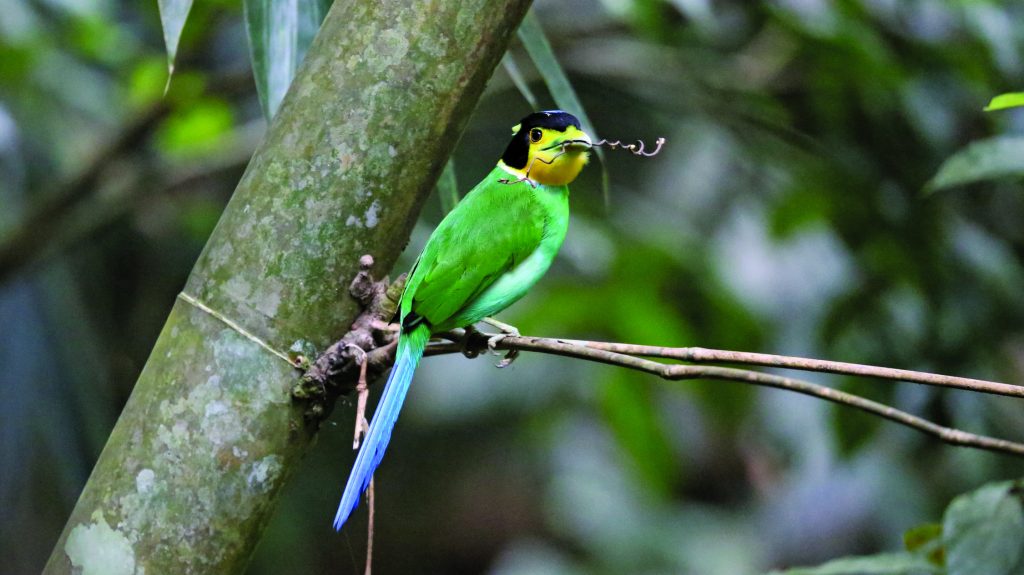
Another absolute highlight was visiting The Sunderbans, mangrove forests on the sea between India and Bangladesh. It’s a spectacular area that’s famous for many things, but it’s so difficult to get to as you need to take a boat inside and there’s many restrictions and things to consider for your safety. The honey collected in The Sunderbans is very famous because there’s a specific flower that grows there. I’d always dreamed of going and collecting it alongside the tribal honey collectors who live there, and I finally made that dream a reality. It was definitely the sweetest honey I’ve ever tried and it’s an experience I will cherish forever.
Walking around the forests, you’re not sure if your next step is going to be one foot deep or five feet deep making it very hard to wade through. People often hear stories about animals killing people in The Sunderbans but very few people know about the water dacoits (bandits) who kidnap people inside the forests and hold them for ransom.
I was definitely afraid when I ventured in but luckily I was fine. I did, however, talk to someone who was picked up and they told me the dacoits made them row their boats and cook their food for a few days. It’s an interesting system that not many know exists within these forests.
Moreover, everyone knows India is home to many tigers within our national parks. I’d say our two best are the Jim Corbett National Park in the lower Himalayas and the Kanha National Park (Kanha Tiger Reserve) in Central India. We actually have a small place right outside the jungle, a small farm outside the national park, so we’ve come face to face with tigers before. We hear them all the time, but getting to see them on foot is just great. It’s our little piece of heaven.
I’ve travelled down the Mekong River across Laos and Cambodia in a small leaking boat just inches above the water, driven through walls of kangaroos inAustralia’s outback, went diving in Costa Rica, I’ve been chased by elephants in Thailand, I’ve been blessed with so many experiences, I could go on and on.
As a nature enthusiast, do you think living in Thailand is advantageous?
Absolutely! Thailand is a haven for wildlife lovers. Sadly, all over the world Thailand markets itself as a beach destination, but this country has so much more to offer beyond beaches and nightlife. Where else in the world can you have tigers, elephants and diverse bird life just two hours’ drive from the capital city? Eventhe parks in Bangkok are teeming with excellent birdlife, more than 200 species can be found in the city itself.
As someone who has truly immersed themselves in what Thailand has to offer, what kind of experiences do you recommend our readers check out?
Across all of my experiences camping around Thailand’s national parks with my wife, we’ve hardly seen anyone of Indian origin around so we would encourage your readers to try camping. The facilities are excellent in the camping grounds of the national parks and having travelled all around the world, I’d like to mention that Thailand is one of the safest countries to go camping in.
Our favourite is Kaeng Krachan National Park just two and a half hours’ drive from Bangkok where you can hire guides for the day that can teach you about bird watching. There are also private bird hides where you can sit and observe rare birds and other animals, including the mouse deer, the smallest hoofed animal in the world.
Most Bangkokians choose to go to Khao Yai for picnics or to stay outside the park in a resort, but the national park itself is actually a great place for animalwatching.
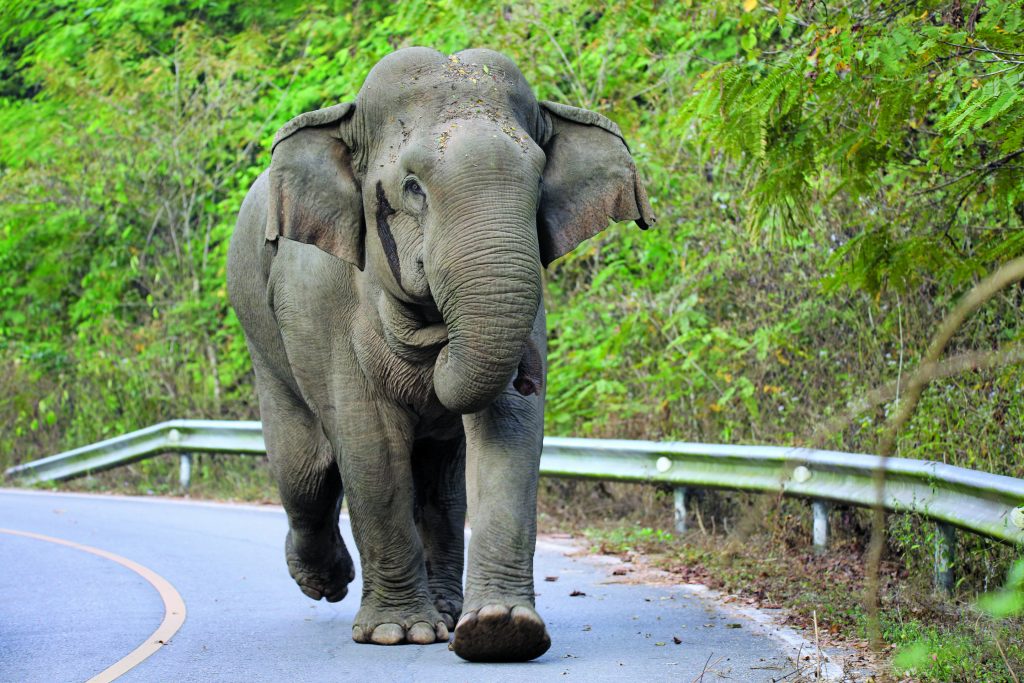
Are there any facts about water that you think our readers would be interested to know about?
What most Thais should be proud of is the legacy of His Late Majesty King Bhumibol Adulyadej, King Rama IX. He was very ahead of his time, and didamazing and innovative work in the area of water management and nature-based solutions. His idea of the self-sufficiency economy philosophy of developmenthas been also incorporated into the Sustainable Development Goals of the UN. I’m a very big fan of his work and believe there is definitely a need to write more about his work in English and communicate it to the world at large.
Considering you’ve achieved so much already, what are some goals you have for the near future?
I’ve never planned in my life, I’ve always gone with the flow of the river, so whatever excites me and I’m happy doing, and of course, what pays the bills! In the near future, I do want to write a book on the philosophy of self- sufficiency economy of His Late Majesty King Bhumibol Adulyadej. Maybe write a book on another river or even about wild Thailand.
Do you have any tips for young professionals just starting out in their careers?
Follow your heart. Do what you enjoy doing most and money will follow! Do not get influenced by peer pressure. Hard work, dedication to what you do, and most importantly, loving what you do is the key.
All photos belong to Ganesh Pangare.



